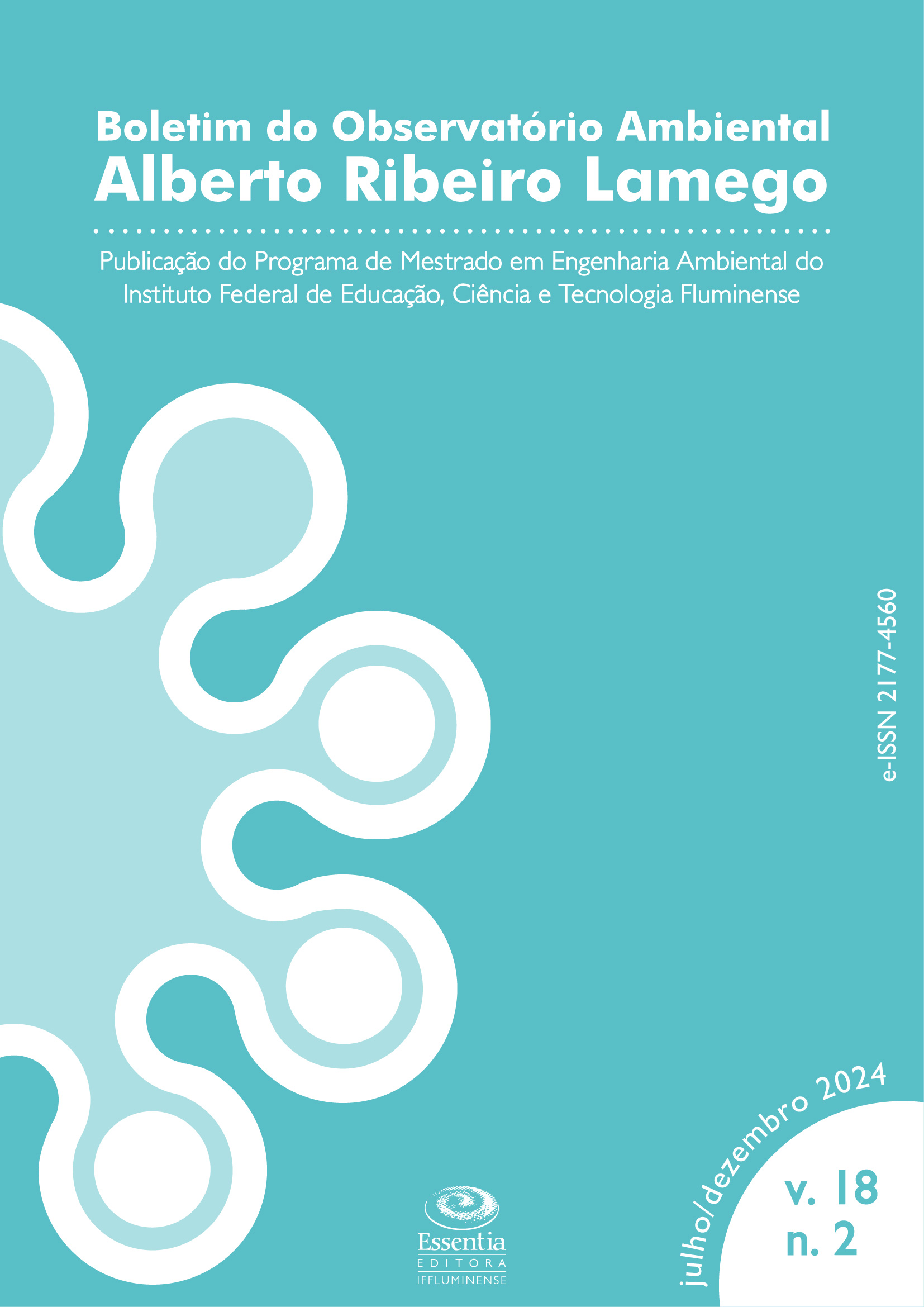The use of coffee waste in the development of bicomposites
DOI:
https://doi.org/10.19180/2177-4560.v18n22024p48-61Keywords:
DESIGN, SUSTAINABLE, WASTE, BIOCOMPOSITEAbstract
The following research aims to study and develop composite materials, with the aim of proposing the replacement of conventional materials in product development, using coffee grounds and biobinders in the development of this composite material. The present study also presents a proposal for sustainable performance, which contributes to the management of organic waste from local cafeterias. The project is based on research, theoretical foundations, concepts and experiments related to design, materials, sustainability and design tools, in order to guarantee a better understanding of the idealized product, as well as the new life cycle. Finally, the importance of the challenge faced in the development and use of tools that aim to contribute to cultural transformation in the pattern of production and consumption is noted.Downloads
References
ASSEAME – Apenas 1% do lixo orgânico é reaproveitado no Brasil.2019. Disponível em: < https://assemae.org.br/noticias/item/4494-apenas-1-do-lixo-organico-ereaproveitado-no-brasil> Acesso em: 23/março/2024 ENSUS 2024 – XIII Encontro de Sustentabilidade em Projeto – UFMG – BELO HORIZONTE - 07 a 09 de Agosto de 2024
Conselho Nacional do Café. Café do Brasil. 2021. Disponível em: Acesso em 21 de julho de 2023.
STROUB, N.G.F. Mapeamento das oportunidades de valorização dos resíduos da produção do café brasileiro destinados à indústria de cosméticos. Monografia. Universidade Federal do Rio de Janeiro, 2021. Embrapa.Produção dos Cafés do Brasil ocupa 1,9 milhão de hectares em 2023. 29 de junho de 2023. Disponível em: Acessado em 21 de julho de 2023.
ASHBY, M.F.; JOHN, P.M, K. Materiais e design: arte ciência da seleção de materiais no design de produto. Tradução: Arlete Simille Marques, 2. Ed. Rio de Janeiro: Elsevier, 2011.
CALEGARI, E. P.; OLIVEIRA, B. F. Aspectos que influenciam a seleção de materiais no processo de design. Arcos Design. Rio de Janeiro: PPD ESDI - UERJ. Volume 8 Número 1 Junho 2014. pp 1-19. Disponível em: Acessado em: 04 de julho de 2023.
TOMAR, S.M. Comportamento Mecânico de Materiais Compósitos de Origem Natural. Dissertação de Mestrado - Instituto Superior de Engenharia de Lisboa, 2018 Disponível em : Acesso em: 28 de dezembro de 2023.
ASTM D 3878-95: Standard terminology for composite materials, Philadelphia (PA): American Society for Testing and Materials; 1995.
CALEGARI, E. P.; OLIVEIRA, B. F. Compósitos a partir de materiais de fontes renováveis como alternativa para o desenvolvimento de produtos. Artigo - Varia, Sustentabilidade em debate - Brasília, v. 7, n. 1, p. 140-155, jan/abr 2016.
NETO, F, L.; PARDINI, L. C.; Compósitos Estruturais: Ciência e Tecnologia. São Paulo Blucher, 2016. VILAPLANA, F.; STRÖMBERG, E.; KARLSSON, S. Environmental and resource aspects of sustainable biocomposites. Polymer Degradation and Stability, 95, p. 2147-2161, 2010.
LOPES, Bruno Leonardy Sousa; "Materiais compósitos", p. 11 -36. In: Polímeros reforçados por fibras vegetais. São Paulo: Blucher, 2017.
RIBEIRO, K. C.A. Biocompósitos Poliméricos: Envelhecimento Ambiental, Integridade Estrutural e Processo de Reciclagem. Universidade do Rio Grande do Norte, Programa de PósGraduação em Engenharia Mecânica, 2012.
STRUNCK, G. Viver de Design. Rio de Janeiro, 3° Edição, Editora 2Ab, 2001.
STROUB, N.G.F. Mapeamento das oportunidades de valorização dos resíduos da produção do café brasileiro destinados à indústria de cosméticos. Monografia. Universidade Federal do Rio de Janeiro, 2021
TILLEY, Alvin R.; HENRY DREYFUSS ASSOCIATES. As medidas do homem e da mulher: fatores humanos em design. Porto Alegre: Bookman, 2005.
TOMAR,S.M. Comportamento Mecânico de Materiais Compósitos de Origem Natural. Dissertação de Mestrado - Instituto Superior de Engenharia de Lisboa, 2018. Disponível em : <https://repositorio.ipl.pt/bitstream/10400.21/9679/1/Disserta%C3%A7%C3%A3o.pdf /> Acesso em: 28 de Dezembro de 2023.
VILAPLANA, F.; STRÖMBERG, E.; KARLSSON, S. Environmental and resource aspects of sustainable biocomposites. Polymer Degradation and Stability, 95, p. 2147-2161, 2010.
WICK, R. Pedagogia da Bauhaus. Tradução de João Azenha Jr. São Paulo: Martins Fontes, 1989.
WWF.ORG. Desenvolvimento sustentável. disponível em <https://www.wwf.org.br/participe/porque_participar/sustentabilidade/> Acesso em: 15 de junho de 2023.
Downloads
Published
Issue
Section
License
Copyright (c) 2024 RAFAEL FERREIRA, DOUGLAS DANIEL PEREIRA, GEOVANNA QUEIROZ SILVA

This work is licensed under a Creative Commons Attribution 4.0 International License.
The authors of the manuscript submitted to Boletim do Observatório Ambiental Alberto Ribeiro Lamego, hereby represented by the corresponding author, agree to the following terms:
The authors retain the copyright and grant Boletim do Observatório Ambiental Alberto Ribeiro Lamego the right of first publication.
At the same time the work is licensed under the Creative Commons Attribution 4.0 International License, allowing third parties to copy and redistribute the material in any medium or format and to remix, transform, and build upon its content for any legal purpose, even commercially, provided the original work is properly cited.
Authors will not receive any material reward for the manuscript and Essentia Editora will make it available online in Open Access mode, through its own system or other databases.
Authors are authorized to enter into additional contracts separately for non-exclusive distribution of the version of the work published in Boletim do Observatório Ambiental Alberto Ribeiro Lamego (eg, publish in institutional repository or as book chapter), with acknowledgment of authorship and initial publication in this journal.
Authors are permitted and encouraged to publish and distribute their work online (eg, in institutional repositories or on their personal page) at any point after the first publication of the article by Boletim do Observatório Ambiental Alberto Ribeiro Lamego.
Essentia Editora may make normative, orthographic and grammatical changes in the originals in order to maintain the standard language, with the final consent of the authors.
The content and opinions expressed in the manuscript are the sole responsibility of the author (s).










1.png)





